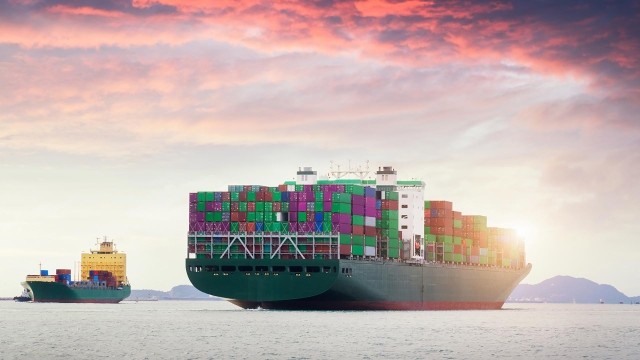Digitalization helps remove barriers to international trade, but businesses must speak up

As businesses around the world emerge from the COVID-19 pandemic, several challenges continue to impact international trade. In many regions, small- to mid-sized enterprises have been hardest hit as governments hammer out trade deals as well as the digitalization of trade processes and trade finance.
However, many experts believe that the future of global imports and exports rests on the backs of these same companies, requiring organizations to take unprecedented level of engagement to steer the future of trade finance toward innovation and greater profitability for SMEs.
Challenges within international trade today
Covering the full breadth of challenges facing international trade today could take volumes, but a few key issues have reached the forefront. First is the impact of trade deals and legislation on the industry at large.
For example, the UK-EU trade and Cooperation Agreement (TCA) was instituted to protect the interests of the UK and European Union by ensuring fair competition within trade markets. According to the European Commission, the act “goes beyond traditional free trade agreements and provides a solid basis for preserving our longstanding friendship and cooperation,”i through preferential arrangements in trade.
However, some experts believe the TCA is actually hurting trade and limiting the reach of SMEs into the broader European market. According to research conducted by the British Chambers of Commerce, 71% of exporters believe the trade deal is inhibiting their opportunities for business growth and increased sales.ii Furthermore, the majority believe the act has resulted in higher costs, a growing mountain of paperwork, and further delays.iii
Non-tariff trade measures (NTMs) have also had an impact on global imports and exports, limiting business’ ability to enter foreign markets. NTMs are defined as policy measures other than tariffs that can economically impact economic trade. Some examples include assistive policies, such as those responsible for custom procedures, packaging requirements and technical or sanitary standards. Licenses, quotas and embargoes are other examples of NTMs.
How NTMs impact free trade as a whole is difficult to broadly quantify due to inconsistencies across geographies. For example, the United Nations Conference on Trade and Development (UNCTAD) reveals that NTMs occur with a frequency index of 92% in the UK, covering 89% of industries.iv Compare that to India, a country with a much lower frequency index of 47%.v
NTMs also vary across industries, with sectors such as agriculture, burdened with more restrictive standards than those in other markets, such as manufacturing.vi Overall, most reports posit that NTMs are almost twice as trade restrictive as tariffs.vii
In many countries, NTMs have resulted in higher priced goods, limiting consumer access and as well as business growth opportunities. This type of environment is prevalent in Mexico where NTMs on vegetable oils and fats have increased the price of these imports by 30%.viii Likewise, prices for the apparel sector have been recorded to be 66% higher in the European Union due to the presence of NTMs.ix
Overcoming the challenges to international trade
Experts agree that digitalization of trade can reduce costs and create a more level playing field for all participants by creating a more efficient and cost-effective trading process.
Reducing the use of paper documents in trade is expected to generate a 35% improvement in business efficiency, resulting in a 13% increase in international business for even smaller organizations.x Ninety-two percent of businesses responding to a recent survey believe these improvements will also speed up the trade finance process.xi
Before results like these can be realized, however, the world markets need to establish a higher level of interoperability. To date, the eastern economies have led in trade digitalization, but developments are now happening to unify eastern and western regions.
The UK-Singapore Digital Economy Agreement is harmonizing standards with fully digitalized legal, FTA, and global frameworks, to support modern electronic contracts, digital invoicing, authentication for completely paperless trading and modern logistics. Passage of The UK Electronic Trade Documents Bill will further solidify the digitalization of trade, while providing a roadmap for other countries to rapidly harmonize their own platforms and standards.
However, many experts continue to agree that digital platforms alone won’t broaden access to global trade unless countries tackle the larger issues at play, including NTMs and other legislative policies. This is where businesses must take a stand and become vocal proponents of policy reform. By encouraging the changes in both legislation and digitalization necessary to support faster, more efficient and fair international trade, businesses can shape an environment that will support growth across their lines of business for years to come.
i “The EU-UK Trade and Cooperation Agreement.” European Commission. Retrieved from https://ec.europa.eu/info/strategy/relations-non-eu-countries/relations-united-kingdom/eu-uk-trade-and-cooperation-agreement_en.
ii “BCC Research Finds Little Love for EU Trade Deal.” British Chambers of Commerce. British Chambers of Commerce Press Release, Feb. 16, 2022. Web.
iii “BCC Research Finds Little Love for EU Trade Deal.” British Chambers of Commerce. British Chambers of Commerce Press Release, Feb. 16, 2022. Web.
iv “Data on Non-Tariff Measures.” United Nations Conference on Trade and Development (UNCTAD). Retrieved from https://unctad.org/topic/trade-analysis/non-tariff-measures/NTMs-data.
v “Data on Non-Tariff Measures.” United Nations Conference on Trade and Development (UNCTAD). Retrieved from https://unctad.org/topic/trade-analysis/non-tariff-measures/NTMs-data.
vi “The World Trade Report 2012.” The World Trade Organization. Retrieved from https://www.wto.org/english/res_e/booksp_e/anrep_e/wtr12-2d_e.pdf.
vii “The World Trade Report 2012.” The World Trade Organization. Retrieved from https://www.wto.org/english/res_e/booksp_e/anrep_e/wtr12-2d_e.pdf.
viii “The World Trade Report 2012.” The World Trade Organization. Retrieved from https://www.wto.org/english/res_e/booksp_e/anrep_e/wtr12-2d_e.pdf.
ix “The World Trade Report 2012.” The World Trade Organization. Retrieved from https://www.wto.org/english/res_e/booksp_e/anrep_e/wtr12-2d_e.pdf.
x Daryna Strogal. “Can SMEs Benefit from Digital Solutions in Trade Finance?” Trade Finance Global, Feb. 16, 2022. Web.
xi Daryna Strogal. “Can SMEs Benefit from Digital Solutions in Trade Finance?” Trade Finance Global, Feb. 16, 2022. Web.



